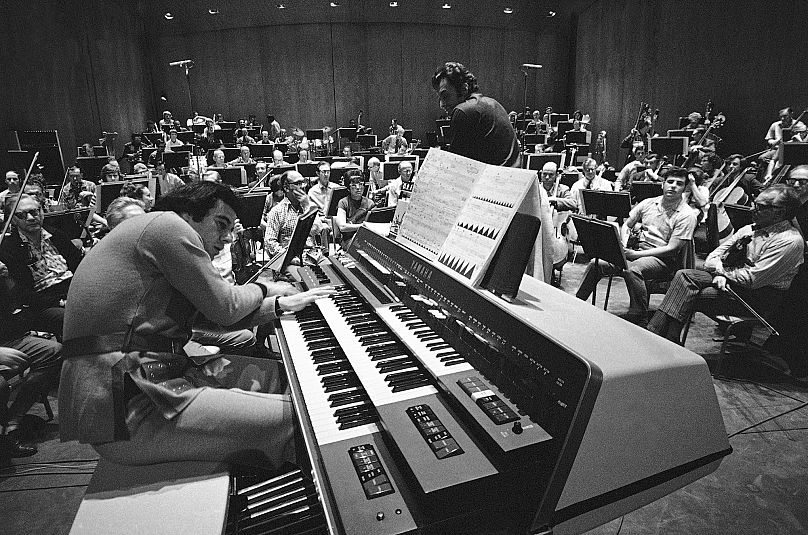Lalo Schifrin, the Argentine-American composer who wrote the iconic theme for Mission: Impossible and more than 100 other arrangements for film and television, has died aged 93.
Schifrin’s son Ryan confirmed that Schifrin died on Thursday due to complications from pneumonia.
Schifrin won four Grammys and was nominated for six Oscars, including five for original score for Cool Hand Luke, The Fox, Voyage of the Damned, The Amityville Horror and The Sting II.
His other best-known compositions include the scores to Bullitt, THX 1138, Enter The Dragon, The Eagle Has Landed, and his collaborations with Clint Eastwood from the late 1960s to the 1980s, particularly the Dirty Harry films.
He also composed the TV themes for The Man From U.N.C.L.E., Mannix and Starsky and Hutch, and famously wrote the grand finale musical performance for the World Cup championship in Italy in 1990, in which the Three Tenors – Plácido Domingo, Luciano Pavarotti and José Carreras – sang together for the first time. The work became one of the biggest sellers in the history of classical music.
Schifrin, also a jazz pianist and classical conductor, had a remarkable career in music that included working with Dizzy Gillespie and recording with Count Basie and Sarah Vaughan. But perhaps his biggest contribution was the instantly recognizable score to television’s Mission: Impossible, which fueled the decades-spanning feature film franchise led by Tom Cruise – which apparently wrapped up this year with Mission: Impossible – The Final Reckoning.
Written in the unusual 5/4 time signature, the theme was married to an on-screen self-destruct clock that kicked off the TV show, which ran from 1966 to 1973. It was described as “only the most contagious tune ever heard by mortal ears” by New Yorker film critic Anthony Lane and even hit No. 41 on the Billboard Hot 100 in 1968.
Born Boris Claudio Schifrin to a Jewish family in Buenos Aires – where his father was the concertmaster of the philharmonic orchestra – Schifrin was classically trained in music, in addition to studying law.
After studying at the Paris Conservatory – where he learned about harmony and composition from the legendary Olivier Messiaen – Schifrin returned to Argentina and formed a concert band. Gillespie heard Schifrin perform and asked him to become his pianist, arranger and composer. In 1958, Schifrin moved to the United States, playing in Gillespie’s quintet in 1960-62 and composing the acclaimed ‘Gillespiana’.
The long list of luminaries he performed and recorded with includes Ella Fitzgerald, Stan Getz, Dee Dee Bridgewater and George Benson. He also worked with such classical stars as Zubin Mehta, Mstislav Rostropovich, Daniel Barenboim and others.
He’s survived by his sons, Ryan and William, daughter, Frances, and wife, Donna.






